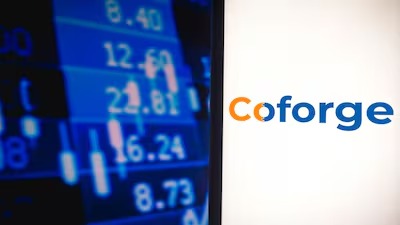
Follow WOWNEWS 24x7 on:

As artificial intelligence continues to reshape the global IT landscape, its impact is being felt in both disruptive and transformative ways. Sudhir Singh, CEO of Coforge, has sounded a cautionary yet optimistic note on how AI is influencing deal structures and technology investments. While the outsourcing industry grapples with steep discounts in contract renewals, Singh believes the overall tech spend is on an upward trajectory, driven by enterprises embracing AI-led transformation.
Key Highlights From The CEO’s Statement
- Clients are renegotiating IT contracts at significantly reduced rates—between 30% to 50% lower—due to AI-led deflation.
- Despite pricing pressures, transformational tech investments are rising, signaling long-term growth.
- Coforge has managed to buck industry trends by securing large deals and maintaining strong revenue growth.
AI-Led Deflation And Pricing Pressures
The outsourcing industry is facing a structural shift in deal economics. According to Singh, the increasing adoption of AI is leading clients to demand lower rates for traditional IT services. This deflationary trend is squeezing margins across the board, especially for firms dependent on legacy contracts.
However, Singh emphasized that this shift is not necessarily negative. Enterprises are reallocating budgets from maintenance and infrastructure to innovation and transformation. The decline in “run budgets” is being offset by a surge in spending on AI-driven initiatives.
Tech Spend Is Rising, Not Falling
Singh’s core argument is that disruptive technologies like AI tend to increase aggregate tech spend over time. Enterprises are not cutting back on technology investments—instead, they are channeling funds into areas that promise long-term value.
He noted that no enterprise has indicated a reduction in tech budgets due to AI. On the contrary, AI is being viewed as a strategic lever for transformation, automation, and competitive advantage.
Coforge’s Performance Amid Industry Headwinds
While many IT firms are struggling with sub-5% revenue growth and margin compression, Coforge has emerged as a standout performer.
- In the March quarter, Coforge won a $1.5 billion deal from US-based Sabre, beating two larger competitors.
- For the June quarter, the company secured five large deals totaling $507 million in order intake.
- Revenue rose 8.2% sequentially in rupee terms and 9.6% in dollar terms, reaching Rs 3,688.6 crore or $442.4 million.
- Year-on-year revenue growth stood at 54%, bolstered by the acquisition of Cigniti.
- Operating margins improved to 17.5% from 16.9% in the previous quarter.
Strategic Focus On AI And GCCs
Coforge’s proprietary AI platform, Quasar, is central to its growth strategy. The platform comprises 32 submodules and supports a wide range of use cases, many of which leverage agentic AI technologies.
Singh also highlighted the role of Global Capability Centres (GCCs) in Coforge’s expansion. GCCs contribute nearly 10% of the company’s revenue and are being scaled rapidly. For instance, Coforge helped a Fortune 10 client ramp up an AI-driven GCC to 400 employees in just three months.
Looking Ahead: A Year Of Strong Growth
Singh described 2025 as a “strong growth year” for Coforge. The company has already reported over 27% year-to-date growth and more than 40% year-on-year growth. Key verticals such as BFSI and travel are driving this momentum.
The velocity and median size of deals are increasing, suggesting sustained demand and confidence in Coforge’s capabilities.
Conclusion
While AI is causing short-term disruptions in pricing and deal structures, it is also unlocking new avenues for growth. Coforge’s ability to adapt, innovate, and win large deals positions it well to thrive in this evolving landscape. Singh’s message is clear: the future belongs to those who embrace transformation, not resist it.
Sources: Economic Times, Financial Express, MSN News





